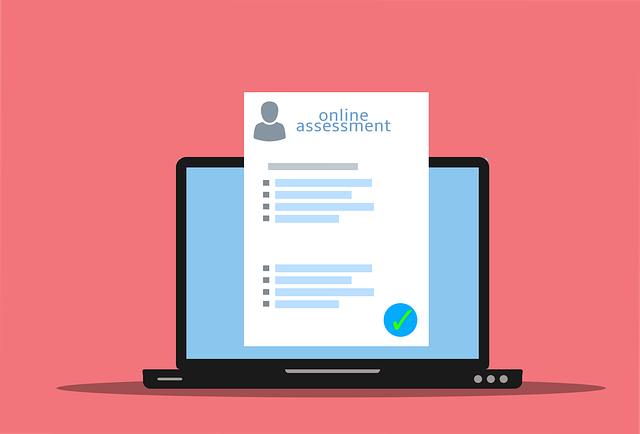In the UK, consent forms are legally and ethically crucial across healthcare, research, and law sectors. For diverse communities, Translation services for Informed Consent Forms UK are vital to ensure participants can understand and voluntarily agree to procedures, protecting their rights and autonomy. These translations require skilled professionals who navigate medical jargon and cultural nuances, avoiding misinterpretations. Advances in machine translation (MT) offer swift alternatives but still need human review. Best practices include consistent terminology, patient-centric language, and regular updates, fostering trust across diverse backgrounds.
In the UK, consent forms are integral to medical practices and research, ensuring patient autonomy and ethical conduct. However, their effectiveness hinges on clear communication, which presents a challenge when dealing with multilingual patients. This article explores the importance of accurate translation in consent forms, delving into the complexities of traditional methods and the benefits of professional translation services. We discuss strategies for navigating cultural nuances, selecting reputable agencies, and leveraging technology to enhance patient understanding, all crucial aspects of informed consent form translation in the UK.
- Understanding Consent Forms: Their Purpose and Importance in the UK
- Challenges of Traditional Translation Methods for Legal Documents
- The Rise of Professional Translation Services for Informed Consent
- Ensuring Accuracy and Cultural Sensitivity in Medical Translations
- How to Choose a Reputable Translation Agency for Consent Forms
- Technological Advancements: Machine Translation and Human Review
- Best Practices for Effective Consent Form Translation and Implementation
Understanding Consent Forms: Their Purpose and Importance in the UK

In the UK, consent forms play a crucial role in ensuring ethical and legal compliance across various sectors, especially in healthcare, research, and legal proceedings. These documents serve as a written agreement between two or more parties, where one party consents to a particular action or procedure. The primary purpose of an informed consent form is to ensure that the individual fully understands the nature of the proposed activity, its potential risks and benefits, and has voluntarily agreed to participate without coercion.
For many organisations, especially those operating in diverse communities, ensuring the clarity and accessibility of these forms is essential. This is where translation services for Informed Consent Forms UK come into play. Accurate and culturally sensitive translations are vital to guarantee that individuals from different language backgrounds can comprehend and give their consent effectively. By addressing linguistic barriers, these services contribute to the overall integrity of the consent process, upholding the rights and autonomy of participants while facilitating inclusive practices in research, clinical trials, and legal interactions across the UK.
Challenges of Traditional Translation Methods for Legal Documents

The process of translating consent forms, particularly for legal documents like informed consent forms in the UK, is far from straightforward. Traditional translation methods often fall short when it comes to accurately conveying complex terminology and nuanced language. These challenges are exacerbated by the sensitivity of medical and legal content, where even a slight misstep can have significant implications.
Direct word-for-word translations may not capture the intended meaning, leading to potential confusion or misinterpretation among readers. Cultural differences in legal systems and societal norms further complicate matters. What works in one language and culture might not be readily adaptable to another without careful consideration. Translation services for informed consent forms UK must therefore employ professional translators who understand both the language and the legal context to ensure accuracy, clarity, and compliance with local regulations.
The Rise of Professional Translation Services for Informed Consent

In today’s globalised medical landscape, the importance of clear and accurate translation services for informed consent forms cannot be overstated. As healthcare organisations increasingly operate across borders, ensuring that consent documents are accessible and understandable for patients from diverse linguistic backgrounds is no longer a luxury but an imperative. This need has led to a rise in demand for professional translation services specialised in medical terminology and compliant with stringent regulatory standards, particularly in the UK.
Professional translation services play a vital role in bridging the communication gap between healthcare providers and patients from different language groups. They employ qualified linguists who not only possess expert knowledge of medical jargon but also understand cultural nuances, ensuring that consent forms are adapted appropriately for their target audiences. This level of specialist expertise is crucial in preventing miscommunication, reducing risks associated with inaccurate translations, and fostering trust between patients and healthcare institutions, especially when dealing with sensitive health information.
Ensuring Accuracy and Cultural Sensitivity in Medical Translations

Ensuring Accuracy and Cultural Sensitivity in Medical Translations is paramount, especially when dealing with Informed Consent Forms (ICF). These documents are critical components of patient-physician interactions, carrying life-altering decisions and implications. When translating ICFs for a UK context using translation services, precision becomes a matter of health and legal compliance. Professional translators must not only grasp medical terminology but also understand the nuances of British English to avoid misinterpretations.
Cultural sensitivity is equally vital. Patient consent forms need to be adapted to respect diverse cultural beliefs and practices while adhering to regulatory standards. Translation services for Informed Consent Forms UK should employ native speakers with healthcare expertise to ensure that the translated ICFs are not only accurate but also culturally appropriate, fostering trust between patients from various backgrounds and their healthcare providers.
How to Choose a Reputable Translation Agency for Consent Forms

When seeking translation services for informed consent forms, it’s paramount to select a reputable agency with proven expertise in healthcare and legal documentation. Look for agencies that offer native-speaking translators who understand the nuances of medical and legal terminology. Reputable firms should also have a clear process for managing sensitive information, ensuring confidentiality and data security.
In the UK, there are numerous options available; however, thorough research is essential. Check their past projects, client testimonials, and industry accreditations to gauge their competence. Consider agencies that specialize in regulatory compliance and offer ongoing support, as this guarantees precision and consistency across multiple versions of your consent forms.
Technological Advancements: Machine Translation and Human Review

Technological advancements in machine translation (MT) have significantly impacted global communication, including the translation of critical documents like informed consent forms. For those seeking translation services for Informed Consent Forms UK, these tools offer a faster and more cost-effective solution compared to traditional methods. Machine translation algorithms can quickly process vast amounts of text, enabling efficient rendering of complex medical and legal jargon into multiple languages.
However, while MT has made remarkable strides, it’s crucial to remember that human review remains indispensable. Automated translations might not always capture nuances or cultural context, leading to potential errors or misinterpretations. Thus, a hybrid approach—employing machine translation as an initial step followed by meticulous human review—ensures the accuracy and clarity of the translated consent forms, especially in sensitive areas like healthcare and research.
Best Practices for Effective Consent Form Translation and Implementation

Ensuring your consent forms are accurately and effectively translated is paramount, especially in a multicultural society like the UK. When it comes to Informed Consent Forms, precision is non-negotiable as any ambiguity could have serious implications for both patients and healthcare providers. Therefore, best practices should always be followed when translating these critical documents.
Start by using professional translation services that specialize in medical documentation. These experts will not only translate the text but also ensure cultural nuances are respected and legal requirements met. Maintain consistency throughout the form, using the same terminology to avoid confusion. Regularly review and update your translated forms to keep them aligned with any changes in regulatory guidelines or clinical practices. Patient-centric language that is easily understandable for diverse linguistic backgrounds should be employed, guaranteeing informed decisions at every step. Additionally, consider cultural adaptations to make sure the consent process resonates with different communities’ values and perspectives.
In the UK, where clear communication is vital for ethical medical practices, understanding and effectively translating consent forms are paramount. The traditional methods often face challenges, making professional translation services increasingly essential. By leveraging advanced technologies like machine translation coupled with human review, we can ensure accuracy and cultural sensitivity in medical documents. When selecting a translation agency, prioritize reputable firms specializing in healthcare to avoid errors that could compromise patient safety. Adopting best practices, including comprehensive training and ongoing quality assurance, is crucial for seamless integration of translated consent forms into clinical workflows, thereby enhancing patient understanding and trust. Translation services for Informed Consent Forms UK play a critical role in facilitating accessible, accurate, and culturally-sensitive healthcare communication.



